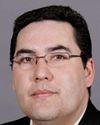Thank you, Madam Chair.
I found the discussion between Mr. Dinsdale and Mr. Merasty quite interesting. To make sure the bill is equitable for everyone, we would almost have to go to two extremes.
The Aboriginal peoples’ situation shows that their conditions in terms of services are such that special provisions should be made at all times. That is the case here and that is to be expected. It is something that has to be done. I think that, if we manage to do so, eventually we will come up with some provisions enabling us to reach everyone. The people from Rural Voices for Early Childhood Education and Care can give us their opinion on this. If we can reach Aboriginal people, it seems to me that we will succeed in reaching other communities. This exercise should be one of generosity and not pettiness. We must avoid saying, for example, that one group in Quebec is receiving services and that this is not right because we have not yet got these services ourselves, and, if we cannot have services, these services should not be offered to another group. There is something unhealthy about that sort of thing and ideological positions...
When our friend Mr. Chong tells us that the Conservatives’ policies are very generous regarding more vulnerable communities, I do not understand. Indeed, the Kelowna Accord, in spite of its imperfections, was very positive. They are the ones who got rid of it. I do not want to turn this into a political issue, but we have to be clear with one another. We must not make any mistakes here; we have to tell it like it is.
Your last comments, Mr. Dinsdale, clarified the question more for me. A statement was made at the Congress of Aboriginal Peoples, with whom you probably have some connections. The statement said that Bill C-303 contained some shortcomings pertaining to Aboriginal peoples, but by wording clause 8 so as to specify the particularities of Aboriginal peoples, there could be a positive outcome. The bill would be more effective and Aboriginal peoples could support it more readily. I would like to hear your comments in this regard. If by chance you have not given some thought to this question, you could send us your comments later.
I also very much enjoyed the contribution by the Child Care Advocacy Association of Canada. I did not have time to consult your report, which looks quite rich, as do all the others, moreover.
I am going to conclude with an example, Madam Chair. When child care services were set up in Quebec in 1997, I was part of it. I worked on it, and my colleague too. We did not achieve perfection the first year, nor has it been achieved yet. This system serves as a model. We dared to do something. It remains that for many years the educators working within this system were paid less than zoo employees. This is the sort of thing that has been improved over time.
We could restrict ourselves to defending our own child care system so that it does not become vulnerable, but what we really want is for all of you everywhere in the country to have a good system. We are going to lend our support to one another and this way this kind of intervention will not make our system vulnerable.
I apologize for not leaving time for an answer.





